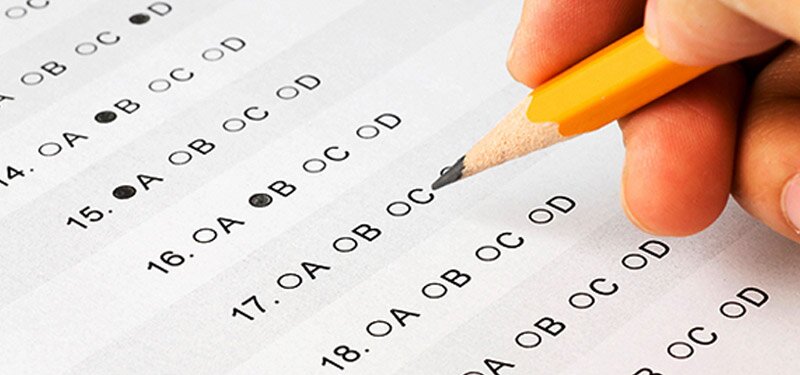
There are many changes a student who is transitioning from high school to college must deal with. For most students, this includes a change in the grading system. Most high schools use the percent grading system while colleges use the Grade Point Average. The Grade Point Average, or GPA for short, provides a standardized way for colleges to judge a student’s academic merit. A student’s GPA can open doors to honors societies, prestigious graduate programs, and a job that pays well. On the flip side, a bad GPA can get a student kicked out of school. Here is an explanation of the GPA scale and some tips on maintaining a high GPA through college.
The GPA Defined
The GPA scale is the standard method of grading for colleges. The scores range from 0.0 to 4.0, which correspond to a letter grade that ranges from A as the best grade to F as the worst grade. Here is the numerical range that corresponds to each letter grade and how much each letter is worth on the GPA scale, according to Collegeboard.com.
- A+/97-100/4.0
- A/93-96/4.0
- A-/90-92/3.7
- B+/87-89/3.33
- B/83-86/3.0
- B-/80-82/2.7
- C+/77-79/2.3
- C/73-76/2.0
- C-/70-72/1.7
- D+/67-69/1.33
- D/65-66/1.0
- E/F/0-64/0.0
Many professors will grade your coursework with the percent grade, so it is useful to have this scale handy to calculate your letter grade as the semester progresses. If you are an incoming freshman, then you can also use this scale to calculate your High School GPA. This will give you a rough idea of how you will perform your first semester in college.
The Importance of Your GPA
While the GPA is important for all students, it is more important for some majors than others. For most colleges, a student must maintain a 2.0 GPA or they are put on academic probation. If they continue to score below 2.0, then they run the risk of being kicked out. This number is particularly important to student-athletes, as they can be ruled academically ineligible if they are placed on academic probation.
Some majors require students to maintain a higher GPA to remain part of the program. A common standard for Education students is a 3.0. This number can be even higher for students that are pre-law or pre-med. Some majors also require a B or better in all major-specific classes. Depending on the school and major, a student may be able to get one or two Cs in major-specific courses without penalty. The bright side is that courses can be re-taken for a better grade.
Having a high GPA can get you recognition from the school and access to honors societies that look great on your resume. If you finish a semester with a GPA of 3.5 or above, then you earn a spot on the Dean’s List of outstanding academic achievement.
A good undergraduate GPA is crucial if you plan on pursuing a graduate degree. Most programs require a minimum of a 3.0. The more competitive programs can require a 3.5 or even a 4.0 to have a chance at being accepted.
Tips for Maintaining Your GPA
Balancing schoolwork and a social life is the great challenge every college student faces. The students who are the most successful use common strategies to succeed both academically and socially.
The easiest strategy to implement for maintaining your GPA is to understand the GPA scoring system before you take your first freshman class. Your GPA is cumulative, which means it becomes harder to affect your GPA as you take more classes. A D in a general education class freshman year might not seem that important, but it can have a significant impact if the rest of your grades are As and Bs. Just being aware of how each letter grade affects your GPA will keep you from failing classes.
Another strategy for maintaining your GPA is strategic class selection. There is a website called ratemyprofessors.com that allows students to post ratings of professors at their colleges. Other students use these reviews as a reference when making their schedules. Say you need to take biology, and it is a section that two professors teach. One professor assigns a ton of homework daily and gives pop quizzes while the other is an easy grader who gives no homework and only announced quizzes. You pick the second class because you have a better chance of getting a higher grade with an easy grader.
Another aspect of class selection is managing your projected workload for the semester. There is a strategy to choosing classes. It is wise to begin upper-level classes in your Sophomore year, so you are never stuck with a semester with four or five 300-level classes. You can also save a general education class or two for your later semesters to balance out a semester with a two or more 300-level classes.
Related to class selection is playing to your strengths and interests. While there are certain classes for certain majors that can’t be avoided, there are often two or more selections to fill a course-level requirement. For example, a Bachelors in English may require three 300-level courses but not specify the genre of literature. All three could be British literature, or all three could be American Literature. Whenever you have a choice, you should always go with your strengths and interests.
Keeping good grades requires time management and discipline. Most professors say each hour of class requires an hour of additional study. A full-time student takes between 12 and 15 credits, which means 12-15 hours of study time. Even if you take 15 credits, this is only 30 total hours of academics a week. Make a study schedule that coincides with your peak focus times. Establish a routine of putting in 4-5 hours of class or study time a day, and you will have no problem maintaining your GPA.
